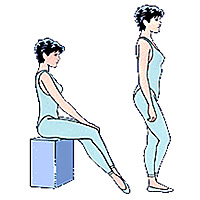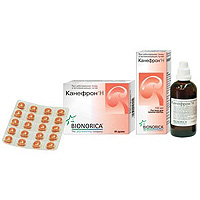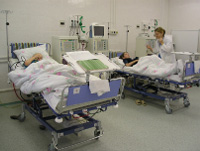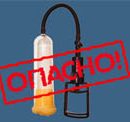What is a female urinary incontinence? How the diagnosis and treatment of women's incontinence is carried out? Answers to these questions you will find in the article.
Content
Female urinary incontinence
Urinary incontinence is an involuntary allocation of urine that cannot be voluntary effort.
Incontinence
urine refers to the group of the most common diseases,
negatively affecting the quality of life of a suffering woman. Exactly
Women, as various forms of urine incontinence are most often inherent
weak floor, among the male population, this disease is found
Much less often. According to European and American statistics, about
45% of the female population aged 40-60 years old celebrate symptoms
involuntary urinary release. According to research carried out on
territories of the Russian Federation, the symptoms of urine incontinence are found in 38.6% of women. This is
associated with some features of the structure of the female sexual system.
Among the causes of urinary incontinence are distinguished:
- failure (weakening) of the sphincters of the bladder, urethra;
- Weakening
Supporting small pelvis structures. They are connected
with pregnancy, childbirth transferred operations on the organs of small
pelvis, age.
International Retention Society (ISC) allocates the following basic forms of urinary incontinence:
 Stressful
Stressful
Urine incontinence is an involuntary urine leak at a voltage (change
Body positions, running, lifting weight, cough, laughter, sneezing). That
Urinary incontinence occurs without a call on urination.
- Urgent
urinary incontinence (imperative urination syndrome or hyperactive
bladder) - involuntary urine release arising immediately
After a sudden irresistible urge to urination. Usually, after
the emergence of this urge, the patient can not stop
urination and does not have time to reach the toilet;
- Mixed
urinary incontinence is accompanied by a sudden uncontrollable calling to
urination in combination with some voltage (change
bodies, running, lifting weight, cough, laughter, sneezing);
- Enuresis -
any involuntary urine loss at any time of the day. If
involuntary urination occurs at night during sleep, they say
about night enuresis;
- Constant urinary incontinence - permanent
The leakage of urine is usually associated with the inconsistency of the sphincter
apparatus, fistula connecting the bladder and vagina, as well as
anomalous arrangement of the ureter and.
- Digging,
involuntary dugout immediately after the completion of the normal act
urination. Usually associated with the accumulation of urine in the vagina or
Diverticulus of Urethra during urination.
Diagnosis of female urinary incontinence
For
what would correctly diagnose and assign competent treatment,
A comprehensive examination of the patient, including:
- Collection
Anamnesis is the very first stage of the survey when a doctor
It is necessary to provide the most complete information about the number of birth
their character and duration, of all operational interventions
on the organs of a small pelvis, as well as about the presence of such concomitant
diseases like diabetes mellitus, stroke, etc.
- Vaginal study, during which the vagina strokes and the cervical cervical can be taken.
- Ultrasound kidneys and bladder.
- Test with gasket, is carried out to determine the number of involuntary urine.
- Urodynamic studies (urination diary; uroofloumometry (assessment of urination indicators); cystometry (measurement of pressure in the bladder during its filling with a liquid through a catheter); urethra (measurement of pressure in the urethra); electromyography (measuring the abbreviation of the crottest muscles).
Treatment of female urinary incontinence
Treatment of urinary incontinence depends on its identified form and provides for different approaches.
IN
present time for the treatment of urine incontinence at a voltage in everything
The world was the gold standard of minimally invasive loopers
(Sling) operations. except
Operational intervention is often used conservative
Treatment methods that include special exercises for crotch muscles
(Box exercises), biological feedback therapy, magnetic
Stimulation of the neuromuscular apparatus of the pelvic bottom and the organs of the small
pelvis, application of local hormone therapy in patients
Applying age.
For the treatment of hyperactive blade
Bubble (GAM) uses drug therapy. Operational treatment
So patient contraindicated.
Patients suffering from mixed
The incontinence of urine, a two-stage treatment scheme is carried out: eliminate
Symptoms of hyperactive urinary
bubble and then an operation is performed about urinary incontinence
at voltage.
The treatment of Enurda involves the use of behavioral therapy, physiotherapy, as well as the reception of drugs.









